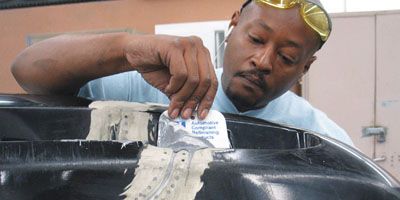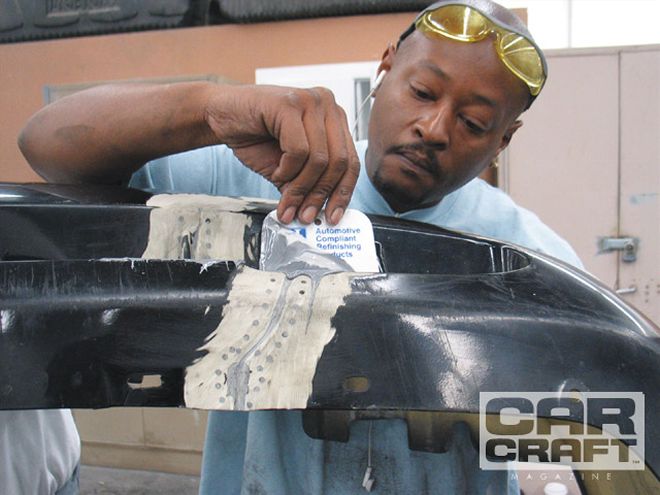
 Los Angeles Trade Tech student Donald Smith applies filler to our plastic bumper cover.
Los Angeles Trade Tech student Donald Smith applies filler to our plastic bumper cover.
Chrome bumpers made a quick exit from the automotive scene in the late '80s. In their place are elaborate, but flimsy, plastic covers hiding stamped-steel impact beams with a wide swath of Styrofoam sandwiched in between. Why? Cost, weight reduction, and ease of repair are the likely culprits. Plastic bumper covers are cheaper and easier to manufacture and replace in the event of an accident.
Plastic bumpers are actually good for us do-it-yourselfers. They are really easy to fix if they get scratched, gouged, or broken, and you don't have to mess with expensive rechroming once finished. Check out how the students at Los Angeles Trade Technical College smoothed out a few rippled and cracked bumpers.
How To Identify Plastics
We found a great online resource for plastic repair procedures. Check out Urethane Supply Company-it has a great section on its website with charts listing the types of plastics used in automotive applications, how to identify them, and how to fix them. Surf over to urethanesupplycompany.com.